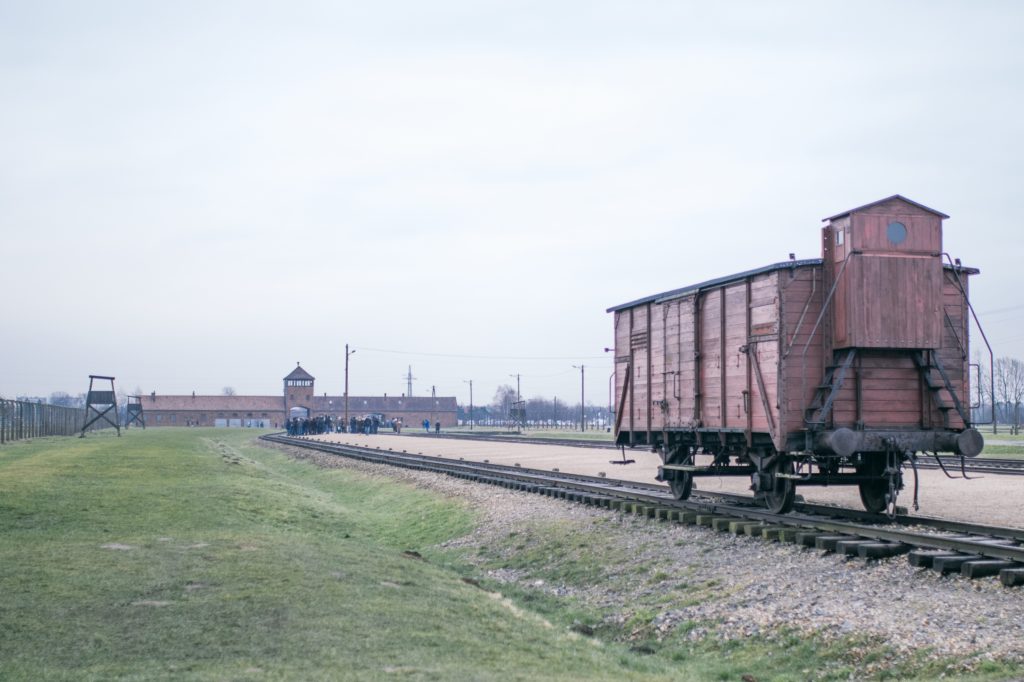The Remembrance Day for the victims of the Holocaust marks the anniversary of the liberation of the extermination camp Auschwitz-Birkenau by the Soviet Red Army on 27 January 1945. The day was designated by the United Nations in 2005 on the occasion of the 60th anniversary of the liberation of Auschwitz. The International Holocaust Remembrance Day is commemorated each year in order not to forget the Holocaust, to honor the victims and to commit the world to prevent genocide from ever happening again. It was commemorated last week in Brussels by a number of events by the EU institutions.
The main ceremony took place last Wednesday in the European Parliament and was this year preceded by the opening of an exhibition of the Roma Genocide. While 2 August has been designated as the date for the commemoration of the Roma victims, the Parliament called in a resolution last October to include the Roma Genocide in the annual Holocaust Remembrance Day.
The Holocaust was the systematic extermination of the Jews for the only reason that they were Jews. All Jews, innocent men, women, children, were denied the right to live and were condemned to extermination according to the Nazi racist ideology. It defies human comprehension to understand how the Holocaust could happen in the middle of civilized Europe.
The ceremony started with Shai Abramson, former chief cantor of the Israel Defense Forces, singing the Jewish prayer El Maleh Rachamin in memory of the victims who were murdered by Nazi Germany.
“The victims who were crammed into the gas chambers and had only a few minutes to live once the doors were closed found the time and strength to carve in the walls with their fingernails the following words: ‘Do not forget’,” said Albert Guigui, chief rabbi of Brussels.
He continued that, “It is dangerous to trivialize the horrific. To do so encourages Holocaust deniers...Teaching people about the Holocaust means teaching them how to survive. Today more than ever that means passing on to future generations the founding values of Europe, starting with an unwavering commitment to democracy and respect for the individual.”
European Union High Representative Federica Mogherini said in a statement that remembering Europe's dark past and translating what we have learned from our experience into our policies is critical to prevent against the rise of antisemitism, discrimination and hate speech in Europe.
"The Holocaust and World War Two have defined Europe's modern history like no other event. Our European Union was founded on the desire to say ‘never again’", she said.
"But still, 70 years later, antisemitism, discrimination and hate speech are again on the rise in Europe," noted Mogherini. "The best antidote against this madness is knowledge.”
“It is even more important that Jewish culture remains the integral part of our shared European culture as it always has been. The history of our European Union is linked to the history of the Jewish people. The European Union could not exist without the memory of the Shoah, and it could not exist without European Jews.”
| The Nuremberg trials and the crime of genocide The European Parliamentary Research Service issued a briefing note on EU and its contribution to Holocaust remembrance. It states among others that the perpetrators were prosecuted at the Nuremberg trials in 1945-1946, but the charge of crimes against humanity was preferred over genocide. 12 defendants were sentenced to death with no right of appeal. Law professor Philippe Sands writes in his recent book “East West Street”, part family history part legal thriller on the origins of genocide and crimes against humanity, that the idea of individual criminal responsibility would become part of the new legal order. The sovereignty of the state would no longer provide refuge for crimes on such a scale. Rafael Lemkin was Polish-Jewish lawyer who lost his own family in the Holocaust. During the war he collected evidence on Nazi Germany’s systematic extermination of the Jews and advocated that “genocide” should be recognized as an international crime. The Nuremberg judgement was silent on the crime of genocide although three of the four prosecutors had used the term. But Lemkin’s efforts were not fruitless. In 1948 the United Nations General Assembly adopted the International Convention on the Prevention and Punishment of the Crime of Genocide. This went beyond what the judges at Nuremberg had decided. Noting that genocide denied “the right of existence of entire human groups”, United Nations affirmed that genocide is a crime under international law. Asked by The Brussels Times about the Nuremberg judgement, Philippe Sands confirms that it made no mention of genocide. “Rafael Lemkin, who invented the term, which refers to the protection of groups, described that fact as making it the ‘blackest day of his life’. Instead of curling up in a corner and weeping, he picked himself up, went off to the first meeting of the UN General Assembly, and persuaded delegates to confirm that the concept of genocide was a part of international law.” “It is that indomitable spirit which informs the continued relevance and importance of the term in global public consciousness: a word that opens up the imagination and captures the understanding of total horror.” |
The Brussels Times

